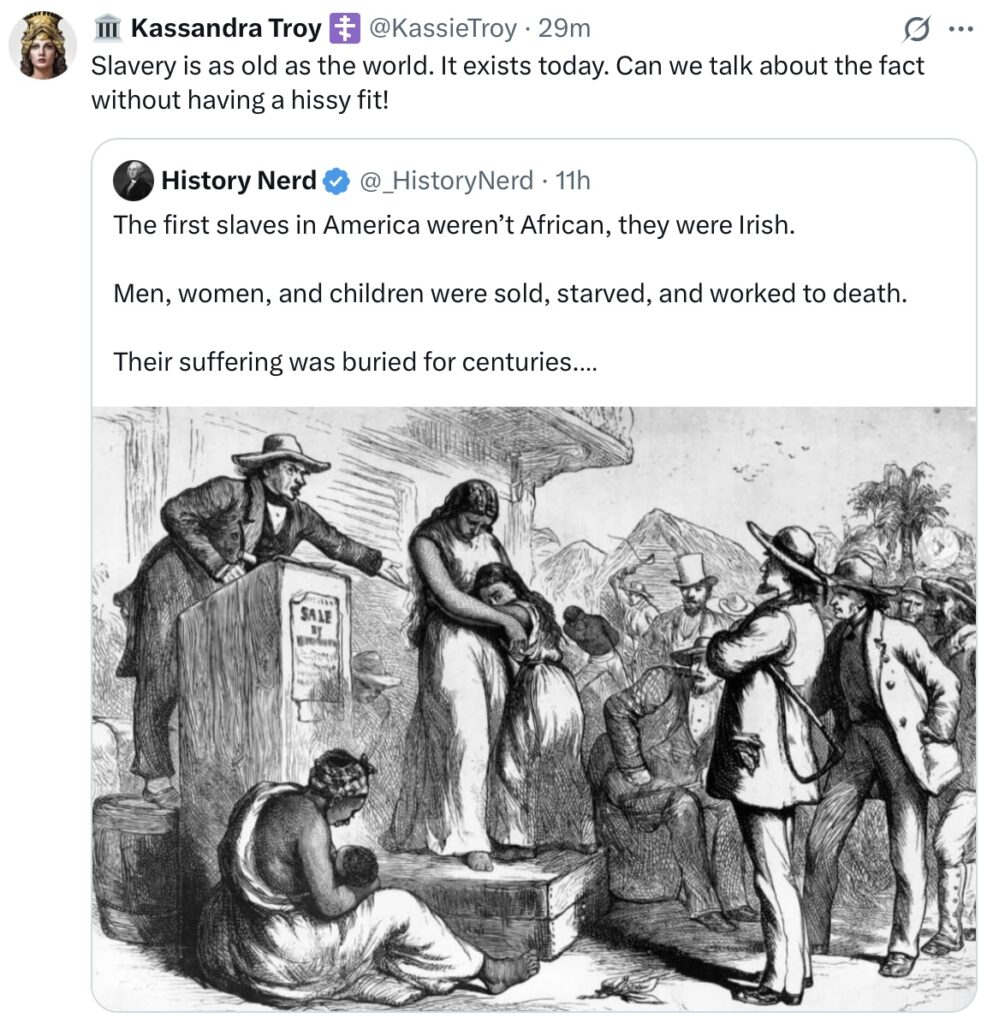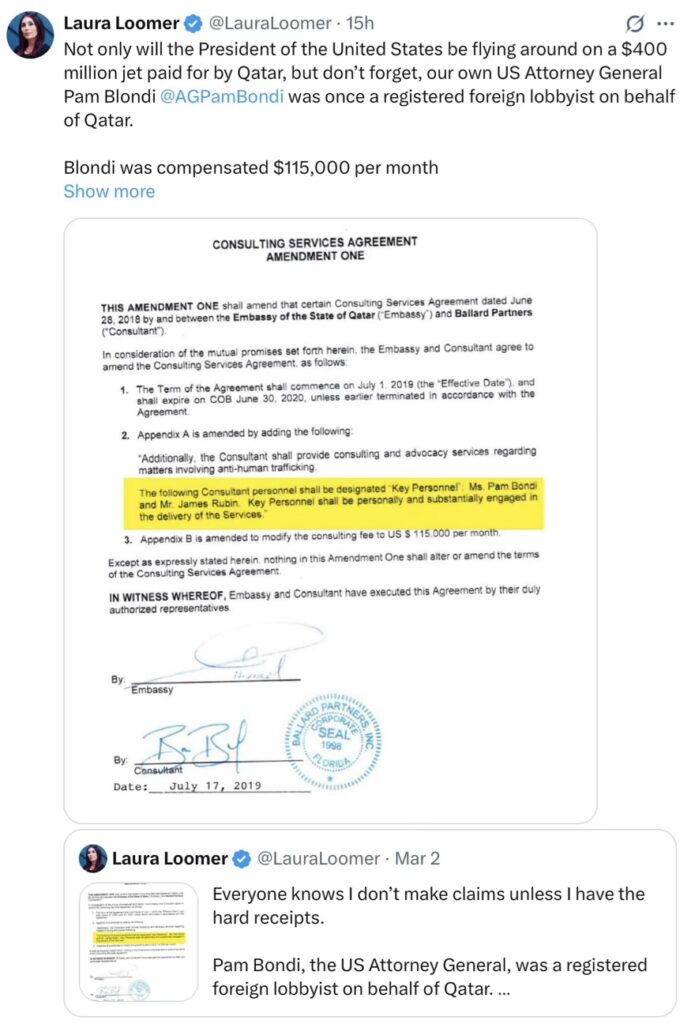(1127) Cunning plan is this post, then the first and second of the four Peter Wimsey parts, maybe a quiz later in the afternoon. Can say though that Ladies at Lunchtime is in hibernation for the moment, no plans in that direction. (1139)
13. There’s something about conservatories and greenhouses

12. Slaves

11. Would you trust a Qatari gift jet?
Would you trust Pammy?

12. Slaves – long before anti-white racism took hold in schools this subject within a subject was taught properly. Human labour: exploitation and slavery, that was the way I was taught it at school in the late 1960’s. It wasn’t about race back then, we were informed of a practice that is as old as agriculture. So thousands of years BC. The progressives pin it all on whitey because it suits their purpose to guilt-trip us into excepting our replacement as punishment for deeds past. However:
‘For over 300 years, the coastlines of the English Channel and the south west of England were at the mercy of Barbary Corsairs (Muslim pirates from North Africa who operated from the 16th to the 19th century). Men, women and children were kidnapped to be sold as slaves.
The Barbary pirates attacked and plundered not only those countries bordering the Mediterranean but as far north as the English Channel, Ireland, Scotland and Iceland, with the western coast of England almost being raided at will.
Partly as a result of an inadequate naval deterrent, by the early 17th century the situation was so bad that an entry in the Calendar of State Papers in May 1625 stated, ‘The Turks are upon our coasts. They take ships only to take the men to make slaves of them.’
Barbary pirates raided on land as well as at sea. In August 1625 corsairs raided Mount’s Bay, Cornwall, capturing 60 men, women and children and taking them into slavery. In 1626 St. Keverne was repeatedly attacked, and boats out of Looe, Penzance, Mousehole and other Cornish ports were boarded, their crews taken captive and the empty ships left to drift. It was feared that there were around 60 Barbary men-of-war prowling the Devon and Cornish coasts and attacks were now occurring almost daily.
The situation was so bad that in December 1640 a Committee for Algiers was set up by Parliament to oversee the ransoming of captives. At that time it was reported that there were some 3,000 to 5,000 English people in captivity in Algiers. Charities were also set up to help ransom the captives and local fishing communities clubbed together to raise money to liberate their own.
In 1645, another raid by Barbary pirates on the Cornish coast saw 240 men, women and children kidnapped. The following year Parliament sent Edmund Cason to Algiers to negotiate the ransom and release of English captives. He paid on average £30 per man (women were more expensive to ransom) and managed to free some 250 people before he ran out of money. Cason spent the last 8 years of his life trying to arrange the release of a further 400.
By the 1650s the attacks were so frequent that they threatened England’s fishing industry with fishermen reluctant to put to sea, leaving their families unprotected ashore.
Oliver Cromwell decided to take action and decreed that any captured corsairs should be taken to Bristol and slowly drowned. Lundy Island, where pirates from the Republic of Salé had made their base, was attacked and bombarded, but despite this, the corsairs continued to mount raids on the coastal towns and villages in Cornwall, Devon and Dorset. Those kidnapped would be sent to the slave markets of the Ottoman Empire to be bought as labourers or concubines, or pressed into the galleys where they would man the oars.’
The end came when Algiers was attacked from the sea, not only by British warships but also by the French and Spanish. The United States fought two wars against the Barbary States of North Africa: the First Barbary War of 1801–1805 and the Second Barbary War of 1815–1816. Finally after an attack by the British and Dutch in 1816 more than 4,000 Christian slaves were liberated and the power of the Barbary pirates was broken.
Do they teach that in school today? No. The narrative must be maintained: only whitey engaged in slavery.
……
JH: Going to run this at OoL tomorrow, Steve.
The Irish really hate being out-grievanced by anyone else, don’t they?
But remind them that in the 17th century Irish troops attempted a genocide in Argyll and they’ll claim “impossible” even though the whole thing is well documented.
11. No. And we already knew that about Pammy the TV AG.